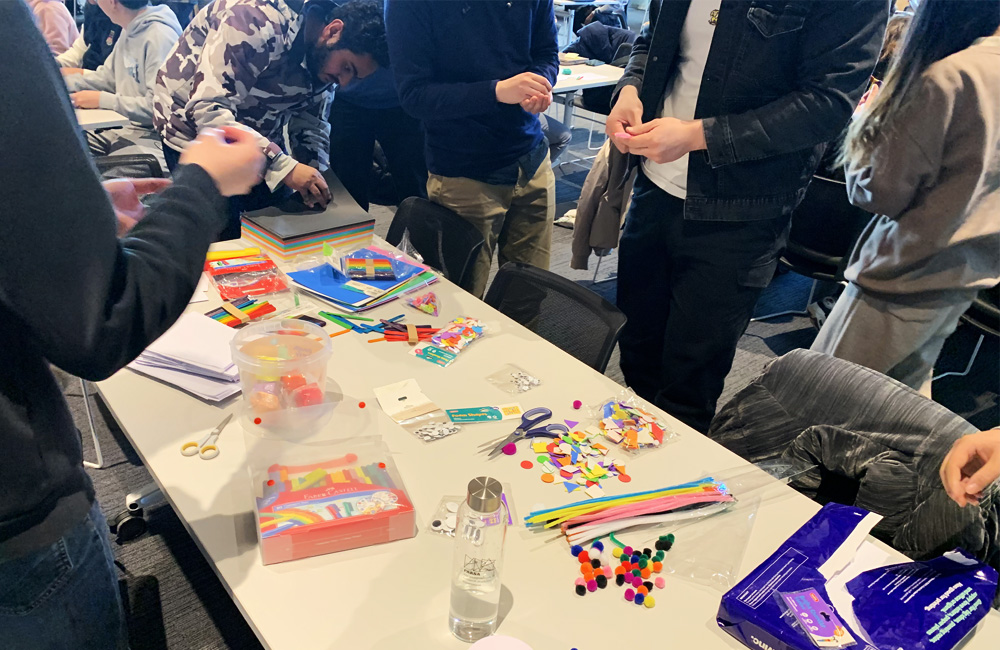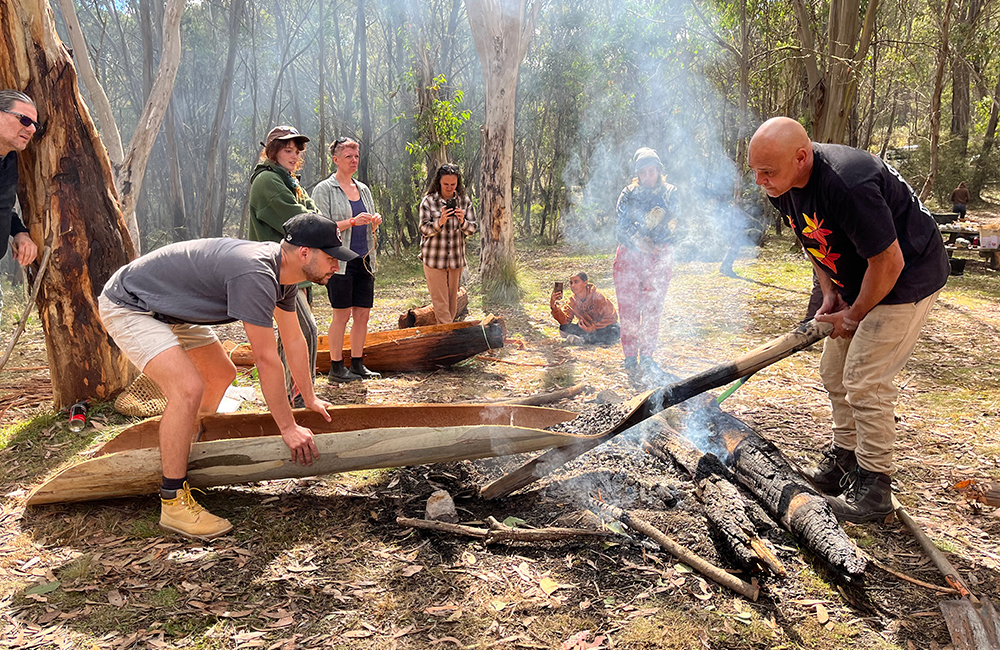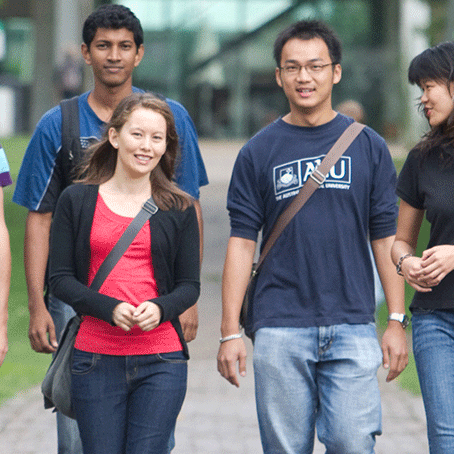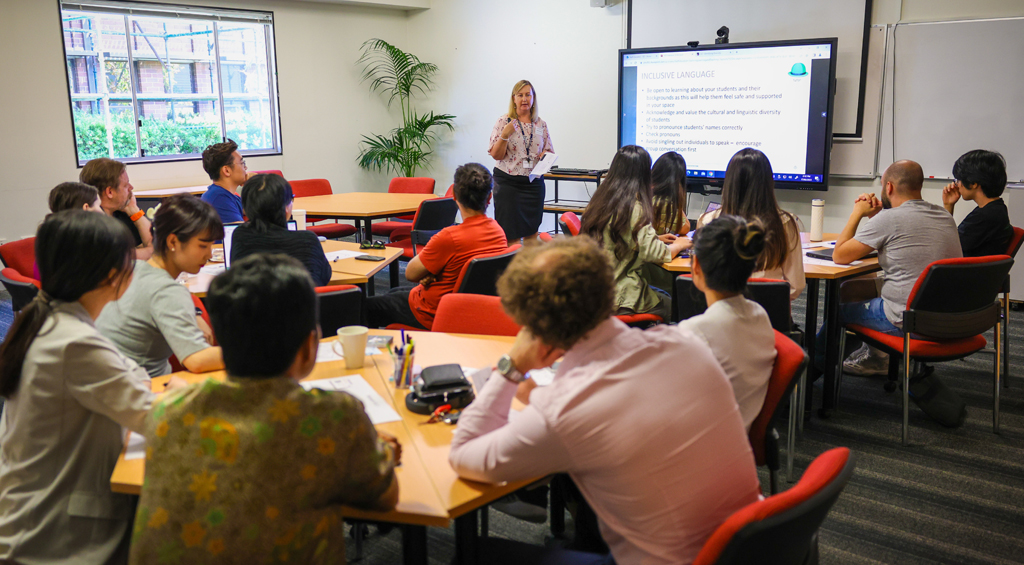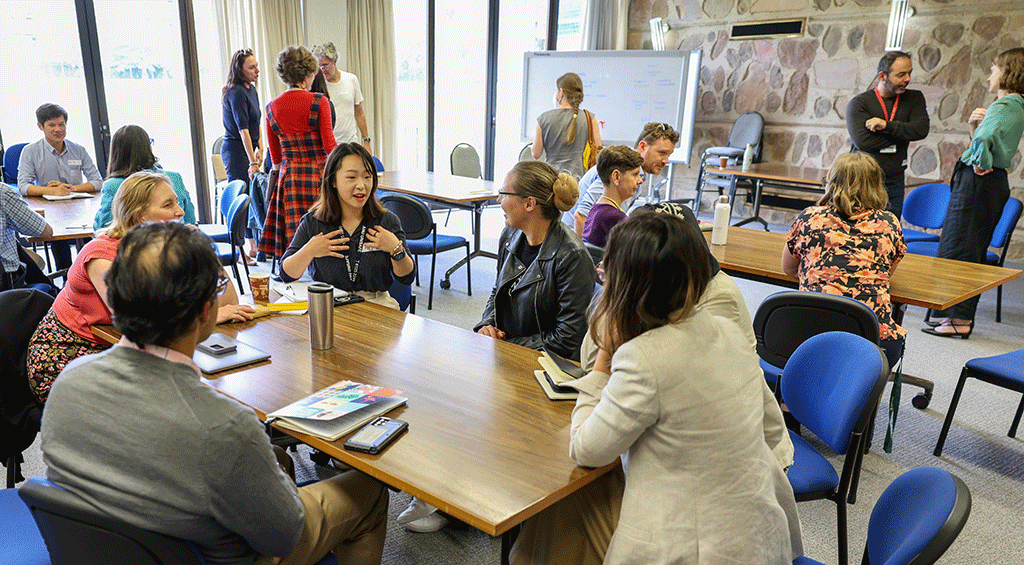Students often spend their entire university life studying hard to pass their courses while balancing casual jobs. When they graduate, students find themselves in a hard spot with little work experience in their field. More importantly, some have never worked in a team, attended a meeting and/or communicated with employers. Sometimes we focus too much on technical knowledge (hard skills), forgetting the professional and interpersonal skills (soft skills), which is likely to influence career success and opportunity.
Thankfully, there are ways to address this. A successful internship story at the Centre for Continuing Education (CCE) is a great example; and there is nothing better than to have the main characters tell us all about it. So, at the end of 2021, I went out there and interviewed Amalia Wulandari, Kim Nguyen and Brian Cooke.
Amalia’s internship was made possible thanks to the College of Business and Economics (CBE) careers and internship program. The program works as a 6 or 12 credit unit and includes five workshops designed to further improve a student’s professional skills. In addition to developing the program, CBE careers and the Student Employability Team provide thorough support to students. CBE careers also ensure a smooth process for the host company. From a host perspective, we might think that supporting work experience programs and seeking an intern can be really hard, but not at CBE.
Watch the video below to get to know our characters and more about the program.
From Amalia’s perspective, the internship gave her a chance to undergo workplace learning, also called practice-based education, and the best opportunity to engage and learn professional skills and appreciate the dynamics and diversity encountered in professional teams. It can be easy to neglect these professional skills as academics and educators. We are often worried about students learning all the concepts and theories that we completely forget the importance of soft skills. In the video below Amalia describes the benefits of the program.
In fact, I recently spoke off camera with another 3rd year student, who shared a similar concern. She has not had many opportunities to practice professional skills, such as presenting a work or debating ideas. That is why it is extremely important to have programs that expose students to professional teams and relevant career skills, so they are ready to face a future job when the time comes. Internships are excellent opportunities because they not only benefit the students, but also employers. Kim and Brian give their personal view on the matter.
One of the great dilemmas my generation faces is what to do once we finish our degrees. We usually feel lost and, with so many options available to us, it can be hard to decide which direction to take without the benefit of having had any previous work experience. Back in Brazil, where I completed my undergraduate degree, my college required every student to fulfill a certain number of internship hours. These hours could be completed either at a company or a laboratory. Apart from creating an excellent opportunity for students and employers, it also provided students with important connections that resulted in jobs both inside and outside the university. Watch below to learn about the potential benefits and consequences of the internship program to our students.
It is undeniable that internships are excellent opportunities for both students and hosts. As academics and staff at the ANU, it is our duty to develop more programs like the one at CBE, as well as to promote the use of soft skills in the classroom. On the other hand, hosts should be more encouraged to apply for such programs. This will not only help students, but also their own teams.
Contact internship.cbe@anu.edu.au for more information.
Read more about internships in the article “Stairway to Employment? Internships in higher education”
Gabriel Bartholazzi is an Educational Technologist at the Centre for Learning and Teaching and a PhD candidate in the College of Engineering and Computer Science.

